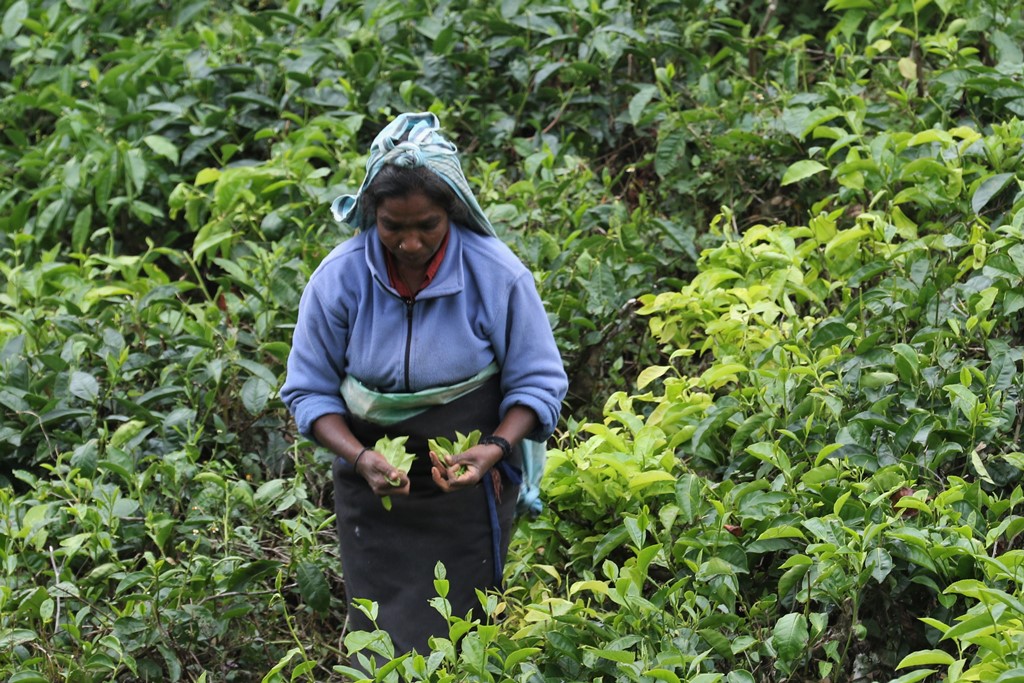( Estate workers wages remain lowest in the country; (c)s.deshapriya)
By Meera Srinivasan.
Talks held under government mediation failed to end the strike that started 10 days ago
Thousands of workers employed in Sri Lanka’s tea estates continued protesting on Friday, apparently rejecting the marginal wage hike that the government negotiated with employers and trade unions.
About 10 days ago, tension erupted across Sri Lanka’s Central and Uva Provinces, where most of the country’s tea estates are located, as workers, mostly Tamils of recent Indian origin, took to the streets and demanded a higher daily wage of LKR 1,000 (around Rs. 450).
Marginal pay hike
A week after widespread demonstrations, representatives from trade unions and the employers’ federation met in Colombo for talks under government mediation. Following this, Sri Lanka’s Labour Minister John Senaviratne announced that the wages would be raised to LKR 730 (Rs. 331) per day.
Workers said the marginal hike not only came late, but was also inadequate. “In effect, their basic wages went up only by LKR 50.
“Moreover, the question is how many days of assured work they might have, especially in the government-owned estates,” said Menaha Kandasamy, General Secretary of the Ceylon Workers Red Flag Union, which was also involved in the negotiations.
The protests, according to her, were only a vehicle to vent their anger, as the community had been exploited for decades. “This is a spontaneous protest,” she told The Hindu, dismissing allegations that they were instigated by political actors.
‘Unrealistic demand’
However, P. Muthulingam, who heads the Kandy-based Institute for Social Development, an NGO working with the plantation community, said the demand for Rs.1,000 was “suddenly taken up” last year by certain political leaders.
Estate workers’ wages were due for revision in March 2015, when a prior collective agreement determining wage rates expired. Over a year after the agreement expired, labourers await revision and a wage they deem fair.
Mr. Muthulingam said it was “unrealistic” to expect a daily wage of Rs. 1000 in the current circumstances, amid falling global tea prices. “Most companies are making losses,” he said
(Original caption: Discord between Sri Lanka’s estate workers, employers continues)
The Hindu
